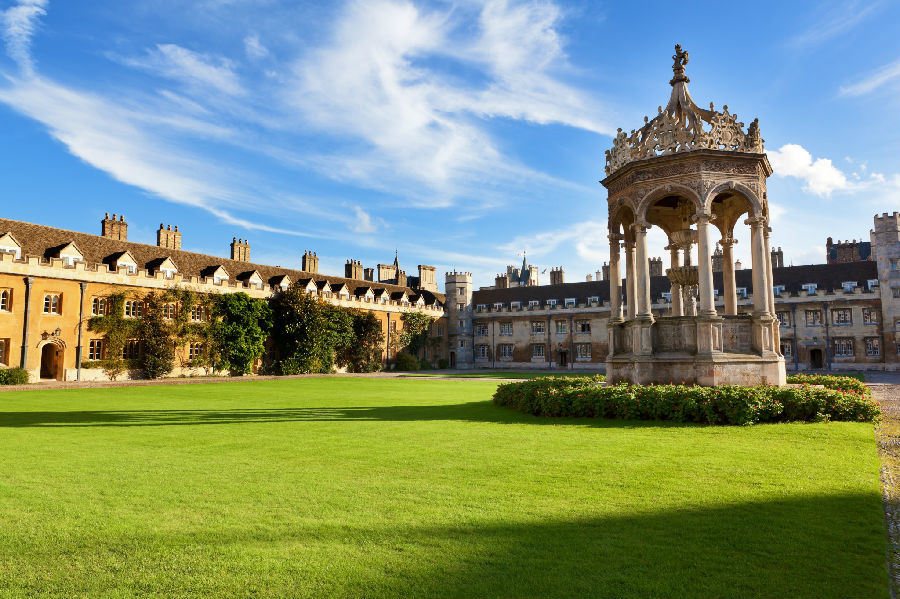College Ratings: How Helpful Are They?
Lists that rate colleges and universities are very popular among parents and students in the United States.
But are published lists the best way to choose the right school?
The best known ranking is probably by the magazine U.S. News & World Report. On top of the magazine's list this year are schools known around the world. They include Princeton University in New Jersey, Harvard University in Massachusetts, Columbia University in New York City, The Massachusetts Institute of Technology (MIT) in Boston, The University of Chicago and Yale University in Connecticut.
U.S. News & World Report published its first "America's Best Colleges" report in 1983. Since then, some educators have questioned the published rankings and how useful they are.
A number of magazines publish lists of college rankings once every year. High school students use the lists as reference guides when considering where to continue their education. There are plenty of schools to choose from. Across the country, more than 4,000 colleges and universities offer undergraduate degree programs.
Last month, Forbes published its college ratings for 2019. It listed 650 schools. That represents only about 15 percent of all U.S. institutions of higher learning.
The magazine's top five are a little different from those of U.S. News & World Report. They are: Harvard University, Stanford University in California, Yale University, MIT and Princeton University.
Like other lists, Forbes considers things like student satisfaction, how successful college graduates are and how much money they make. The magazine adds another important piece of information: how much debt students will owe after they graduate.
We spoke with education experts and people whose job it is to help high school students choose the right college. All of them said students and parents should look at more than just rankings because they do not tell the whole story about a school.
Ray Anderson of Virginia is a former high school principal. He now works with a service called AGM-College Advisors. It provides guidance on higher education to students and their families.
Anderson says what is most important to him is knowing what the student wants, likes and is capable of doing.
"The focus is on who you are, and then what schools match you," Anderson said, "not matching you to the school."
Anderson told VOA the published rankings can help because they have valuable information about the schools.
Jeffrey Stahl agrees that rankings have limited value. In his job as a counselor at Yorktown High School in Virginia, he talks with students about colleges.

Stahl says choosing a college is a very personal decision. He said that the rankings "can be helpful," but some students place too much attention on the name of a school and its position in rankings.
"So much about the campus environment, students, professors, cannot be shown just by ranking," Stahl said. He suggests that families use the ranking information as a starting point. Then, they should widen their search, make their own list, and go see the colleges for themselves.
But David Hawkins is critical of the college rankings. He is with the National Association for College Admission Counseling. He told VOA that rankings "are not mathematically proven to measure the quality of any single college, much less to provide comparisons between colleges."
Hawkins said lower ranked schools may have difficulty getting students interested in their programs.
"As such," he said, "the rankings have been known to create ethical problems, as institutions misreport data or otherwise seek to manipulate their ranking." Like the other experts we spoke with, he said students must look past those ratings to a gain a more factual opinion about the schools for themselves.
In July, U.S. News & World Report "de-ranked" five institutions from its list for misreporting information. Because of this, the magazine said, their ranking number was "higher than they otherwise would have been."
The five included the well-known University of California at Berkeley.
Hawkins noted that people overseas might think the rankings come from the U.S. government. That is not true, he notes. "We try to emphasize that these are commercial publications, rather than 'official' rankings of any sort."
Richard DeMillo heads the Center for 21st Century Universities at the Georgia Institute of Technology. He also is a professor at Georgia Tech — a school that moved up 13 positions on Forbes' latest list.
DeMillo says, while the higher rank is "nice, it does not matter." He believes that Forbes, U.S. News & World Report and other publications are providing a service, "if you ignore the ranking part of it."
For example, he finds the information about all the study programs to be useful. The ratings sometimes list lesser-known schools that might be strong in a field of study that a student is interested in.
All the experts VOA spoke with had similar advice for students looking for the right college. Go visit the school, talk to the admissions officers and talk with current students.
"There are so many hidden gems out there!" Jeffrey Stahl said. "Just because a college doesn't make the "list" doesn't mean it doesn't have great programs and resources!"
I'm Anne Ball. And I'm Dorothy Gundy.
I'm Alice Bryant.












